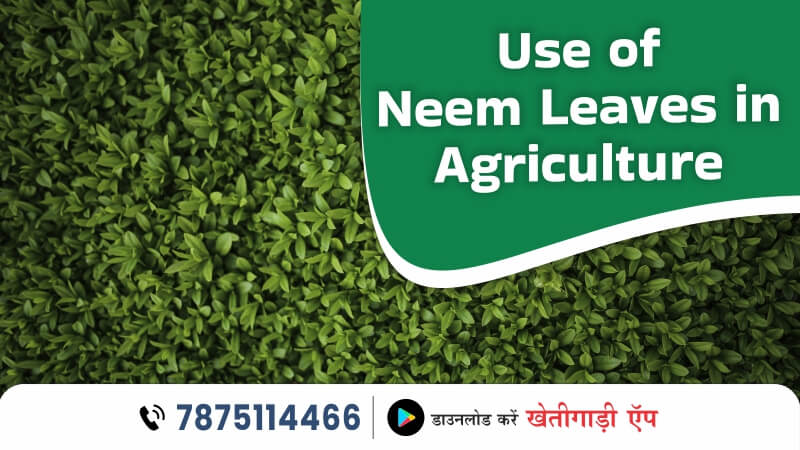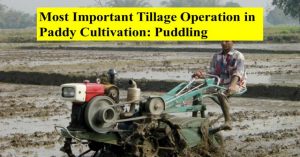The neem plant is regarded as India’s most practical traditional plant. Neem tree components are utilized mostly as insecticides, fertilizers, manures, soil conditioners, urea coating agents, fumigants, etc. due to their diverse qualities. The main problem nowadays is to enhance food production while minimizing environmental damage and insect management. Over the previous few decades, chemical pesticides and fertilizers have become essential parts of sustainable agriculture, making modern cultural norms like their use unavoidable.
In Indian communities, neem products were utilized to protect and nourish crops long before synthetic pesticides, commercial insecticides, and fertilizers were accessible. Nearly 300 different types of insects can be influenced by neem extracts, according to scientific studies. Natural insecticides from neem are thought to be more cost-effective, less toxic to non-target organisms, and less damaging, biodegradable, and persistent. Successful use of compounded neem-based products in agriculture will give the farming community access to a low-cost technology.
Traditional Use of Neem:
Farmers have long used a variety of neem tree parts, including the oil derived from the seed, neem cake (the leftover material after pressing the oil), the leaves, and the wood. Neem cake is used by Indian farmers as a natural manure and soil conditioner. It is thought to decrease the rate of nitrification, increase the effectiveness of nitrogen fertilizers, and prevent soil pests like nematodes, fungi, and insects. Additionally utilized as mulch and green manure are neem leaves and tiny twigs.
Neem oil and leaves have also been traditionally used to safeguard dried grains and legumes. Grain is either stored in jute bags treated with neem oil or other neem extracts, or it is combined with neem leaves during storage. These methods can prevent insect pests from entering food and seed storage facilities for several months.
Making “neem tea” is an additional traditional agricultural technique. To create a liquid pesticide that can be sprayed directly on crops, the seeds are dried, crushed, and soaked in water for an entire night.
Neem Chemistry for Organic Agriculture:
Like all other plants, neem plants contain thousands of different compounds. Terpenoids specific to Neem and several connected members of this family are of particular interest. Different portions of the Neem plant contain more than a hundred terpenoids that are known. Azadirachtin is the most active and thoroughly researched of its biological components. However, a combination of Neem compounds is present and serves as the active principle in the majority of traditional formulations of Neem as a pesticide or medicine.
Different Applications of Neem:
- Neem as Fertilizer:
The organic and inorganic components found in neem plant material have been shown to be effective as fertilizers, enhancing the quality and quantity of crops as well as the soil’s fertility. Neem seed cake, a byproduct of neem seed oil extraction, can be used as a biofertilizer to supply the macronutrients necessary for plant growth.
Neem seed cake serves as both a fertilizer and a pesticide, enriches the soil, inhibits the growth of soil insects and bacteria, supplies macronutrients necessary for all plant growth, contributes to long-term increases in plant yield, and is biodegradable, environmentally friendly, and an excellent soil conditioner.
- Neem as manure:
Neem manure is becoming more and more popular due to its environmental friendliness and the components it contains, which assist to raise the nitrogen and phosphorus levels in the soil. It is rich in minerals, including calcium, nitrogen, potassium, and sulphur.
It is biodegradable and environmentally friendly, nourishes soil and plants by providing all macro and micronutrients, aids in eradicating bacteria that denitrify soil, is perfect for food and cash crops, increases crop yield, aids in reducing fertilizer usage, which lowers the cost of growing plants, and has antifeedant properties that aid in reducing the number and growth of insects and pests.
- Neem as Pesticide
Neem oil is known to be an effective biopesticide and may provide a solution to issues with public health, the environment, and agriculture around the world. Allelochemicals from neem seed oil have reportedly been utilized extensively in agricultural pest management due to their purported abilities to inhibit growth, prevent oviposition, and prevent eating.
- Neem as soil Conditioner:
The soil conditioner is made using granulated or powdered neem seed. It can be sprayed on top of the soil or scraped in before planting.
After the sprinkler operation, appropriate irrigation should be performed to ensure that the substance reaches the roots. It is a natural soil conditioner that aids in boosting soil quality, which in turn promotes the growth of plants and fruits.
Neem is a natural soil conditioner that contributes to raising soil quality and promoting plant and fruit growth. It not only promotes plant growth but also protects the plants from certain insects and pests.
- Neem as Fumigant:
The neem tree has been used to fight agriculture, storage, and domestic pests. Both a pesticide and a disinfectant, neem pest fumigant is available in gaseous form. Farmers and agriculturalists use it on a business basis in a significant number of nations. This entirely natural product is being exported since it is safe for the environment and non-toxic.
In developing nations, where millions of deaths are reportedly caused by the unintentional ingestion of synthetic pest fumigants each year, it gains more significance. This natural fumigant not only kills pests but also has detrimental effects on them by serving as a deterrent to eating and oviposition, a disruption of mating, an obstruction of growth, etc.
Neem fumigants are non-toxic, safe for the environment, and don’t contaminate terrestrial or aquatic environments. They also don’t harm other microbes. It is considerably less expensive, and effective at repelling pests while also nourishing the soil and controlling pest reproduction. Pests do not develop resistance to it.
For more information about neem leaves in agriculture, visit khetiguru mobile application, and also get brief details about tractor prices, tractor videos, tractor games, and tractors on khetigaadi.com.
More information about neem leaves in agriculture can be found on the khetiguru mobile app, as well as brief details about tractor prices, tractor videos, tractor games, and tractors on khetigaadi.com.




